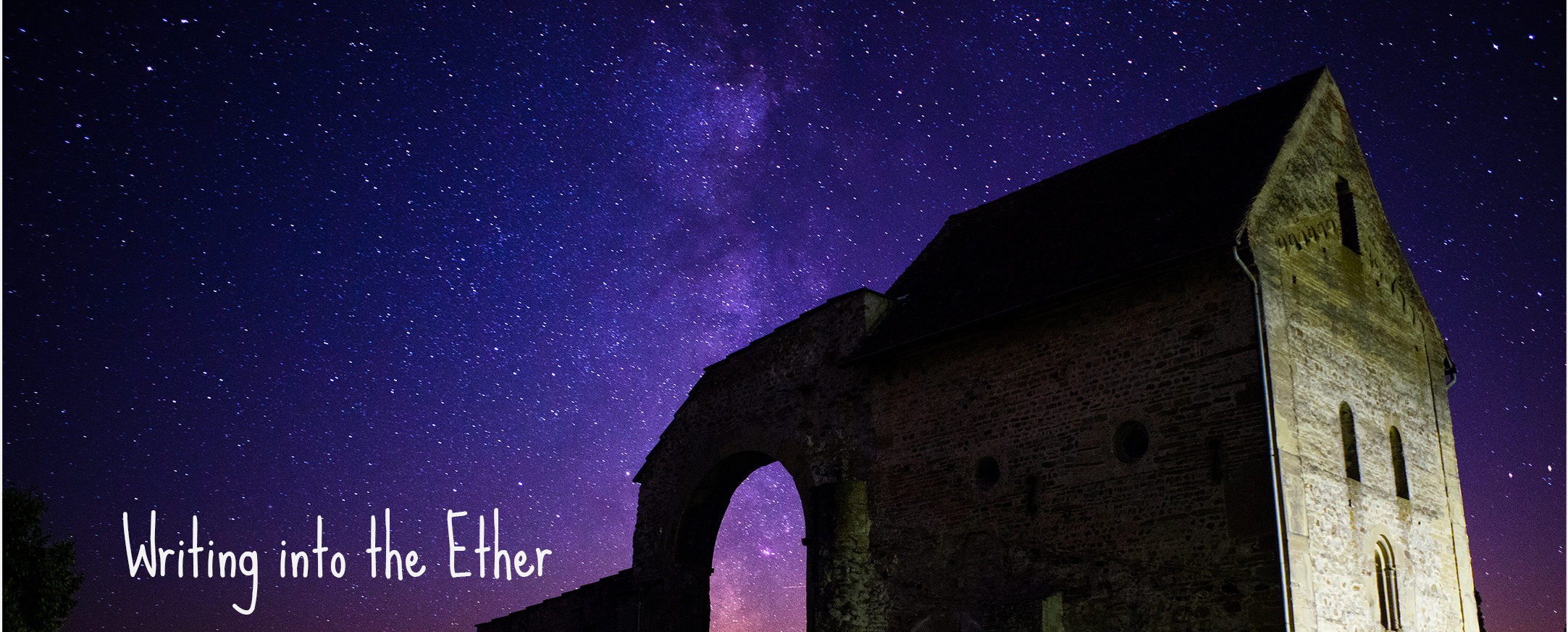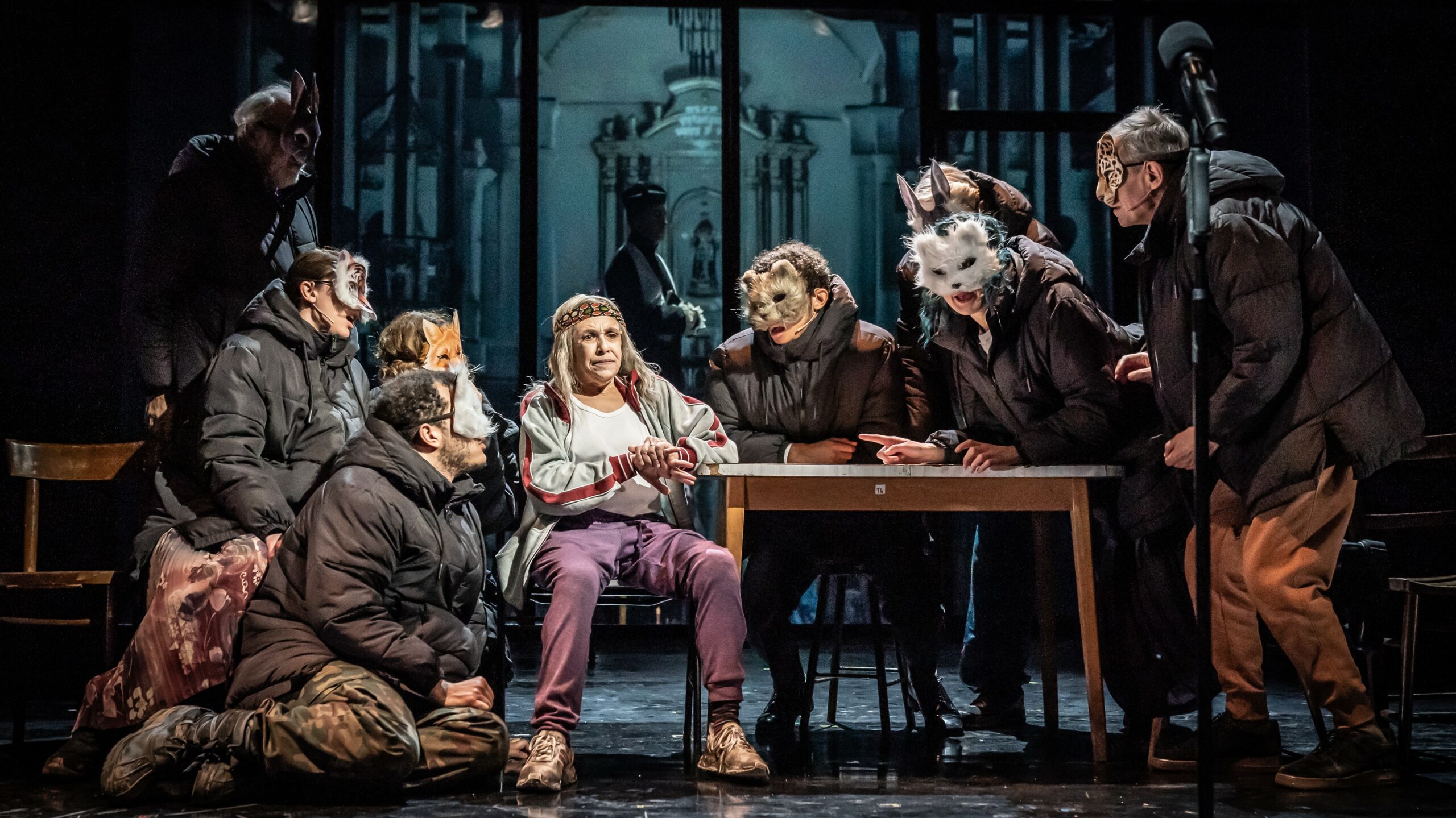The Belgrade invited me to see Drive your Plow over the Bones of the Dead this week and I was immediately intrigued.
Based in a remote mountainside in Poland, this play is described as ‘a defiant attack on authoritarian structures’ and it follows the story of Janina, an isolated, elderly landlady who has a penchant for astrology and kicking up a fuss in the local community. She refuses to stand by as she sees men hunt the beautiful creatures of the forest around her. She protests to the police to no avail, but then she and her friends find bodies in the forest killed seemingly by the very animals the men are hunting.
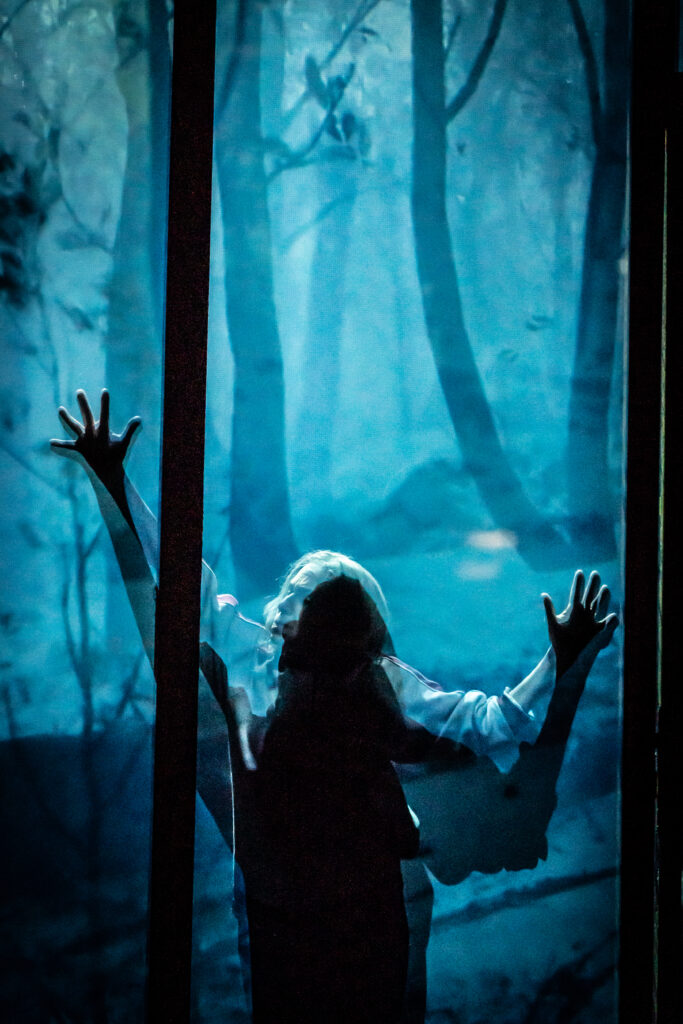
I will caveat this next part by saying, I am generally not a fan of physical theatre. There were some moments (very occasionally) where I felt like my immersion was broken due to things feeling a little cringy. However, the play was visually stunning, with some very elaborate and innovative ways of displaying changes in mood, time and representation of different concepts. The actors were astounding and flawless, particularly the main character (played by Kathryn Hunter) who was acting non-stop for an hour and a half with no breaks or costume changes. She was incredible.
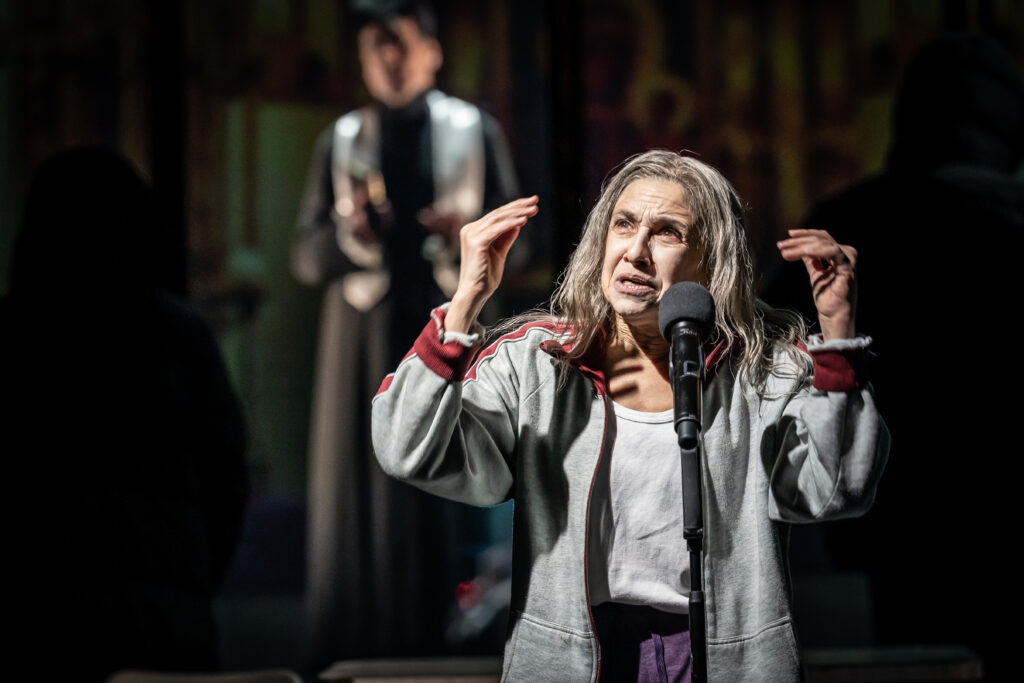
I don’t usually go in so hard when reviewing plays but I feel like this needs to be said. It was way too long. I was exhausted come the interval, and the slow pacing served no purpose. I think it was supposed to build tension and I feel like also it was dedicated to copying the book to the letter, so it ended up breaking my immersion as I wondered when it was going to end. I also deduced the ‘twist’ quite early and so that made me not feel so much excitement. It was such a shame since it was genuinely a fantastic performance from the whole cast.
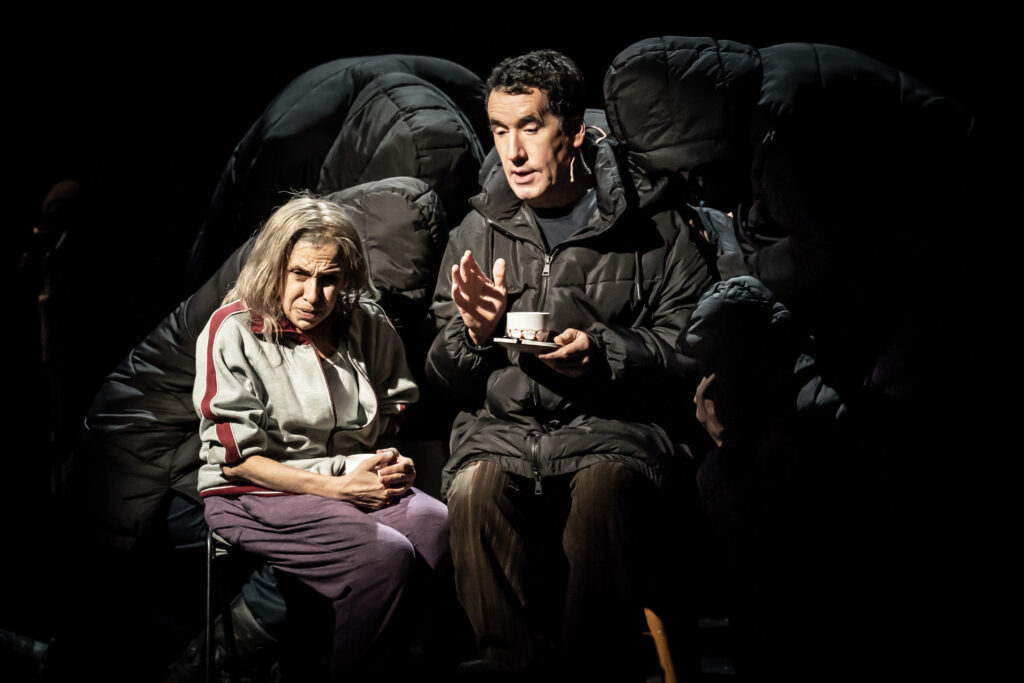
The play spoke of the frustration that many of us feel that not enough is being done to help save our world. However, I feel like if we are to address the issues surrounding our environment we need to stop focusing on revenge and retaliation at the individual, and look more at challenging the systems themselves. Reifying the ‘revenge & retribution’ fantasies that grant our existing broken justice system continual legitimacy is a limited way of inspiring change in your audience. I’d love to see a play explore how we could do that.
